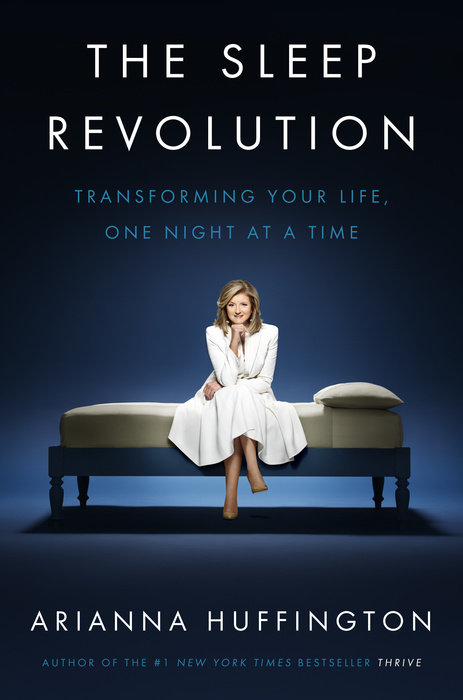Huffington is the founder and CEO of Thrive Global
I’m not a sleep scientist, though I certainly talked to as many of them as I could find for The Sleep Revolution. The fact is, we’re all conducting a longitudinal study of our sleep patterns, all the time, every night. It’s easy to get so caught up in the day-to-day ebb and flow of our lives that we forget to look back, find patterns, isolate variables and make sense of our lifetime’s worth of knowledge to make necessary adjustments. So here is a bag of tricks to help, including some favorites of my own and others based on research.
1. Skip the nightcap
Many people believe that a quick drink before bed helps them get to sleep—and the ritual has been endorsed by “authorities” from Winston Churchill to James Bond. What they don’t realize is what happens in their body afterward. According to a 2015 study from the University of Melbourne, alcohol does initially act as a sedative. But later in the night, it changes allegiances. According to study author Christian Nicholas, “The quality of the sleep you get is significantly altered and disrupted.” A study from the London Sleep Centre confirmed this, finding that “at all dosages, alcohol causes a more consolidated first half sleep and an increase in sleep disruption in the second half of sleep.”
2. Smell the lavender
One of the most popular herbs for sleep is lavender, which has been used throughout history for healing and relaxation. The Greek physician Dioscorides wrote about lavender’s many medicinal benefits as early as the 1st century. A Thai study found that smelling lavender helps us relax by slowing down our heart rate, decreasing our blood pressure and lowering skin temperature. And in Germany, lavender tea has been approved as a treatment for insomnia.
3. Stay awake
Or rather, pretend you want to. If you wake up in the middle of the night, one ingenious tip for falling back asleep comes from a study at the University of Glasgow. Participants were divided into two groups: one was told to do what they normally did. The other was instructed to try to stay awake (without the TV or computer)—a behavior called paradoxical intention. The second group had “a significant reduction in sleep effort and sleep-performance anxiety,” the study’s authors wrote. “Patients realize when they try to remain awake, they feel sleepier, which is what normal sleepers do—people who sleep well don’t try to sleep,” said study author Colin Espie.
4. Get naked
According to a 2012 poll, 74% of Americans prefer to sleep in pajamas, 8% sleep naked and the rest sleep in “something else” (hopefully not their work clothes). In another poll, 57% of those who sleep naked said they were happy in their relationships. There is some science behind this finding. “When you and your partner both sleep naked, the skin-to-skin contact will release oxytocin,” said psychotherapist Fran Walfish. “You may have more sex, and we all know orgasms are mother’s best answer to insomnia . . . better than Ambien!” And with no side effects. Or in this case, the side effect is falling asleep.

Huffington is the founder of the Huffington Post. Adapted from The Sleep Revolution: Transforming Your Life, One Night at a Time. Copyright © Christabella, LLC. To be published by Harmony Books, an imprint of Penguin Random House LLC, on April 5.
More Must-Reads From TIME
- What Student Photojournalists Saw at the Campus Protests
- How Far Trump Would Go
- Why Maternity Care Is Underpaid
- Saving Seconds Is Better Than Hours
- Welcome to the Golden Age of Ryan Gosling
- Scientists Are Finding Out Just How Toxic Your Stuff Is
- The 100 Most Influential People of 2024
- Want Weekly Recs on What to Watch, Read, and More? Sign Up for Worth Your Time
Contact us at letters@time.com